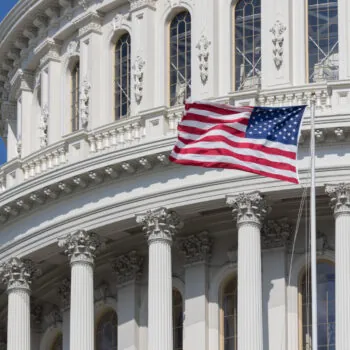This article is one in a series of thought leadership pieces written for Responsible Investor by members of the European Commission’s High Level Expert Group on Sustainable Finance.
Political agreement to tackle climate change in place – tick. Political agreement to deliver sustainable development in place – tick. Now comes the really hard work. Hard because while it is understood delivering a climate safe and sustainable future will require public private cooperation on an unprecedented scale, no one is really in charge of making that happen. Governments can set targets; companies can develop new sustainable products and services; financial institutions can provide capital; but how do we really know how far on or off track we are with delivering a climate-safe and sustainable economy in the EU?
That is the question the European Observatory, proposed by the High-Level Expert Group on Sustainable Finance (HLEG), would help provide answers to. Tasked with gathering, coordinating and publicly reporting how much capital is being deployed and by whom to meet – in the first instance EU’s 2030 climate and energy targets – the Observatory would act as an independent progress tracker and advisor.
The Observatory would be the first step to putting in place a common framework to make sustainable finance tracking the norm.
It could also act as a hub to coordinate Member States in their process of adapting to climate change, ensuring infrastructure is made resilient to the physical impacts of climate change.
As such it would help both the European Institutions and Member States to work out how best to target public policy interventions to accelerate an orderly transition to a sustainable, climate-safe economy. It could be set up to operate as a cross-agency collaboration staffed by experts from within existing EU institutions, and be hosted by the European Environment Agency. Or it could be a new body altogether.
Establishing the Observatory would be the first step to putting in place a common framework to make sustainable finance tracking the norm, starting with climate change. With only 3 years left to put global greenhouse gas emissions on a significant downward trajectory and stay within reach of the 1.5/2°C target, there is no time to lose.
A recent survey conducted by the European Environment Agency found only two of twenty-eight European Member States have the faintest idea of how much investment is needed – and in what technologies – to meet their 2030 climate change goals. Foresight on climate adaption investment needs is also scarce. Yet private capital is standing by ready and willing to invest and so these information gaps need to be addressed with urgency. As well as the business of establishing the European Observatory itself, three further major steps are needed to bring this idea to life.
First, European Governments need to develop – in partnership with the public and private financial institutions with the capacity to help them – National Capital Raising Plans. Developed as part of the mandatory National Energy and Climate Plans being developed by Member State governments right now, they would provide investors with visibility over the scale of investment envisioned and the role they are expected to play in delivering on national government energy and climate objectives.
The Plans would signal where project pipelines will be developed, indicate what tools and funding streams will be used to attract private finance, and credibly set out how the number of low-carbon projects are expected to grow.
Aggregated together at EU level, this information would pave the way for an investable EU level 2050 climate strategy shortly after, allowing the EU simultaneously to secure global leadership in both climate action and sustainable finance.
Second, progress needs to be made on tagging securities and loans to identify whether they are being used for climate and green activities or not. Formal definitions, methods and tools to aid tagging – all areas being advocated in the HLEG’s report – will be key to moving this process forward.
Accurate tagging is a fundamental pre-requisite to enable Government to incentivise sustainable finance activities and fortunately, there are many private sector initiatives looking at the issue of definitions. These include the Climate Bonds Standard, the Green Bond Principles and S&P’s Green Evaluation Service. Global index leader FTSE Russell have also developed extensive work on green revenues to help investors better understand companies’ exposures to the green economy.
Despite this progress and the clear benefits, financial institutions will need encouragement to tag all securities and loans since this is a substantial undertaking. This will be key to ensuring the reporting of information to the Observatory. This is where a third innovation is needed. France has taken a lead in this area. It has encouraged the tagging of investments through implementation of Article 173 of the Energy Transition Law, which asks financial institutions to explain how their activities are consistent with climate objectives. As a result, a process of tagging and tracking green securities and loans is now underway.
Clearly the EU should also be considering whether Article 173 should be implemented at an EU level. This would also put the EU well on the way to being the first jurisdiction to implement the recommendations of the FSB Taskforce of Climate-Related Financial Disclosures. Addressing the challenges and opportunities that building a climate safe and sustainable economy imply is nobody’s job and everybody’s job, meaning the public and private sector must now pull together to make sure every euro invested is invested wisely. That is what the Observatory would help to achieve – and in doing so help make Europe the destination of choice for investors looking to back the transition to a sustainable economy.


